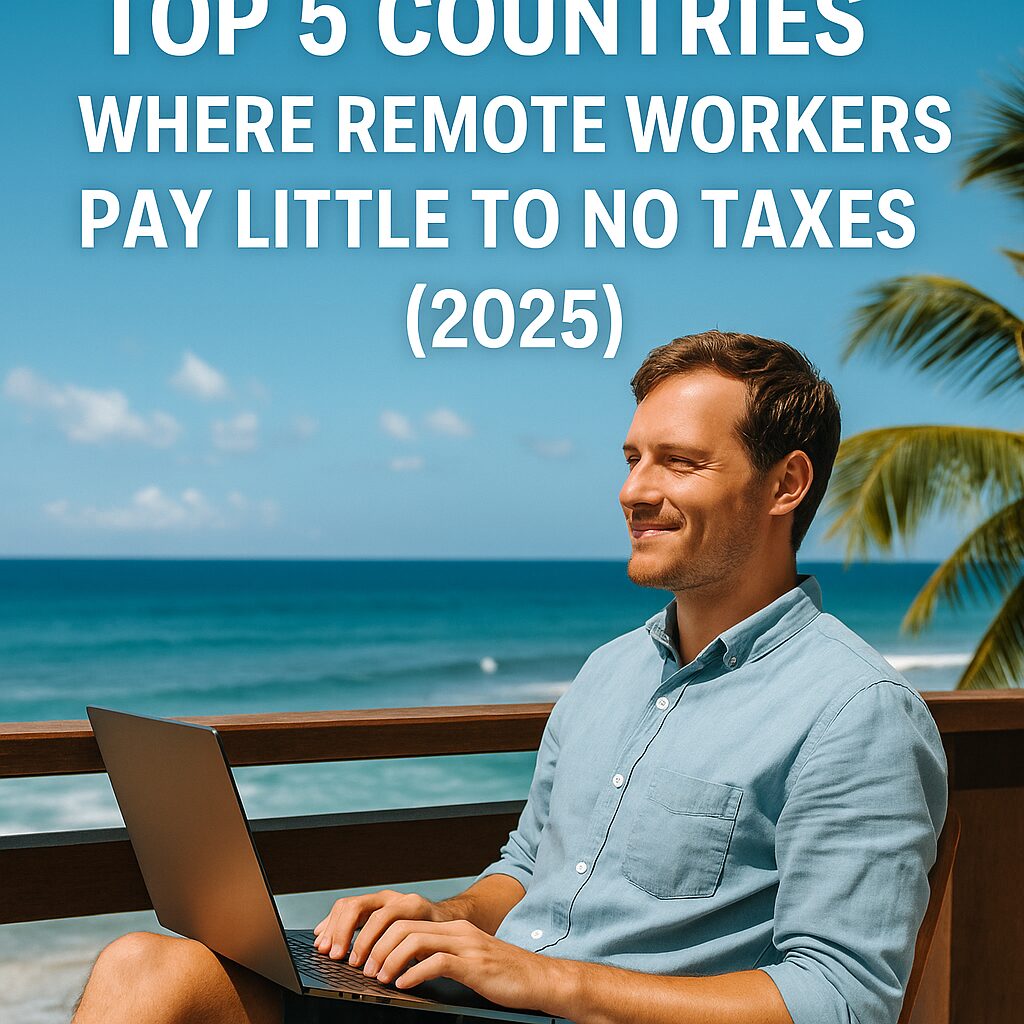If you’re a remote worker or digital nomad, taxes are likely one of your biggest concerns—and possibly one of your largest expenses. What if you could legally live and work in a country where taxes are minimal or even zero? In this guide, we’ll introduce five countries where remote workers can significantly reduce or eliminate their income tax burden in 2025.
1. United Arab Emirates (UAE)
Tax Rate: 0% on personal income
Why It Works:
The UAE is a well-known tax haven, especially for freelancers and entrepreneurs. It has no personal income tax, and if you set up a company in a free zone (like Dubai or Abu Dhabi), you can legally conduct international business while maintaining tax-free status on your income. The country is modern, English-friendly, and boasts a high standard of living.
Bonus Tip:
You’ll need a UAE residence visa, which you can get through property investment or business formation. The UAE recently introduced a remote work visa as well.
2. Georgia
Tax Rate: 1%–5% for small businesses
Why It Works:
Georgia has a special regime called the Individual Entrepreneur (IE) status, where eligible remote workers can pay as little as 1% tax on gross income up to ~$155,000/year. It doesn’t require company formation, and the registration process is simple. Georgia also exempts foreign-source income from local taxes in many cases.
Bonus Tip:
Tbilisi is a rising hub for digital nomads due to its affordability, safety, and vibrant culture.
3. Panama
Tax Rate: 0% on foreign-sourced income
Why It Works:
Panama uses a territorial tax system, meaning you only pay taxes on income generated within the country. If your clients or employer are outside Panama, you may legally owe zero income tax. The country offers various visa options, including a Friendly Nations Visa and a Digital Nomad Visa.
Bonus Tip:
Panama also has strong banking privacy laws and uses the U.S. dollar, which simplifies financial planning for Americans.
4. Portugal (Non-Habitual Resident Regime – NHR)
Tax Rate: 0–20% under NHR
Why It Works:
Portugal’s NHR tax program offers a 10-year tax holiday on many types of foreign income. Some remote workers may even qualify for a 0% rate on passive income and a flat 20% rate on earned income. While the program has tightened in 2024–2025, it remains one of Europe’s most attractive options.
Bonus Tip:
Combine NHR with Portugal’s D7 passive income visa or Digital Nomad Visa for optimal legal residency.
5. Thailand (Long-Term Resident Visa – LTR)
Tax Rate: 17% flat or less
Why It Works:
Thailand’s new LTR visa offers reduced tax rates and perks like work permits, fast-track airport access, and four-year renewable stays. For high-income earners, the tax rate can be significantly reduced with proper planning.
Bonus Tip:
Under specific conditions, income from foreign sources not brought into Thailand within the same year may not be taxed.
Final Thoughts
Tax residency is a powerful tool. But remember: living in a low-tax country doesn’t automatically mean you’re exempt from your home country’s tax laws. Always consider:
- Exit tax implications
- Permanent Establishment (PE) risks
- U.S. citizenship-based taxation (if applicable)
Work with an international tax expert to ensure compliance while maximizing savings. With the right structure, you can legally earn more, keep more, and still sleep well at night.
